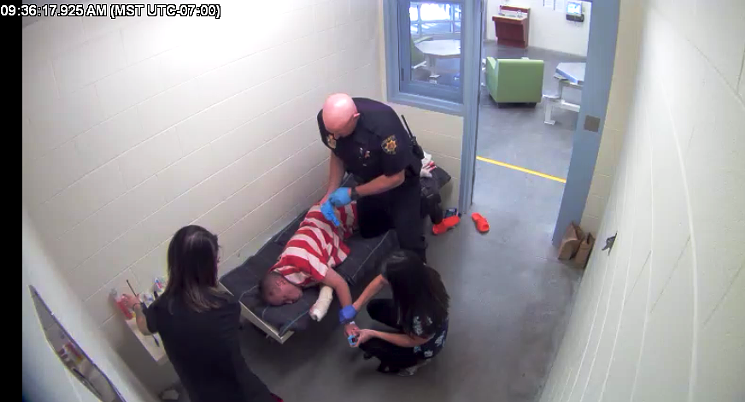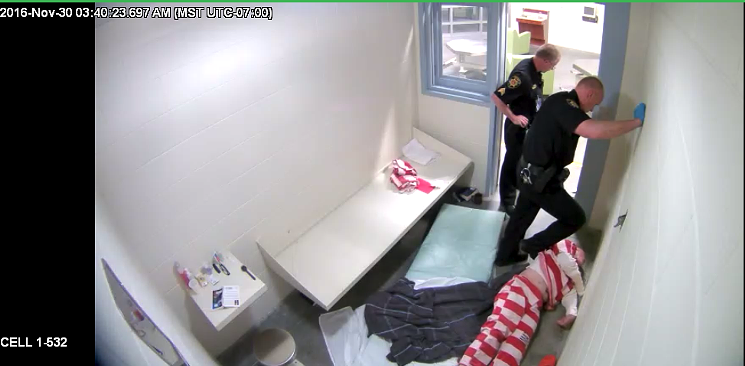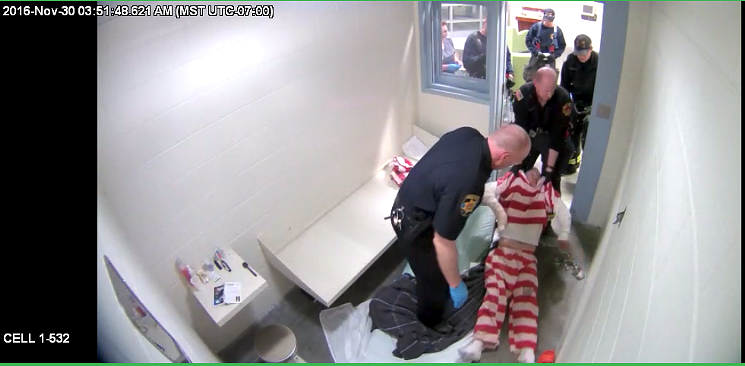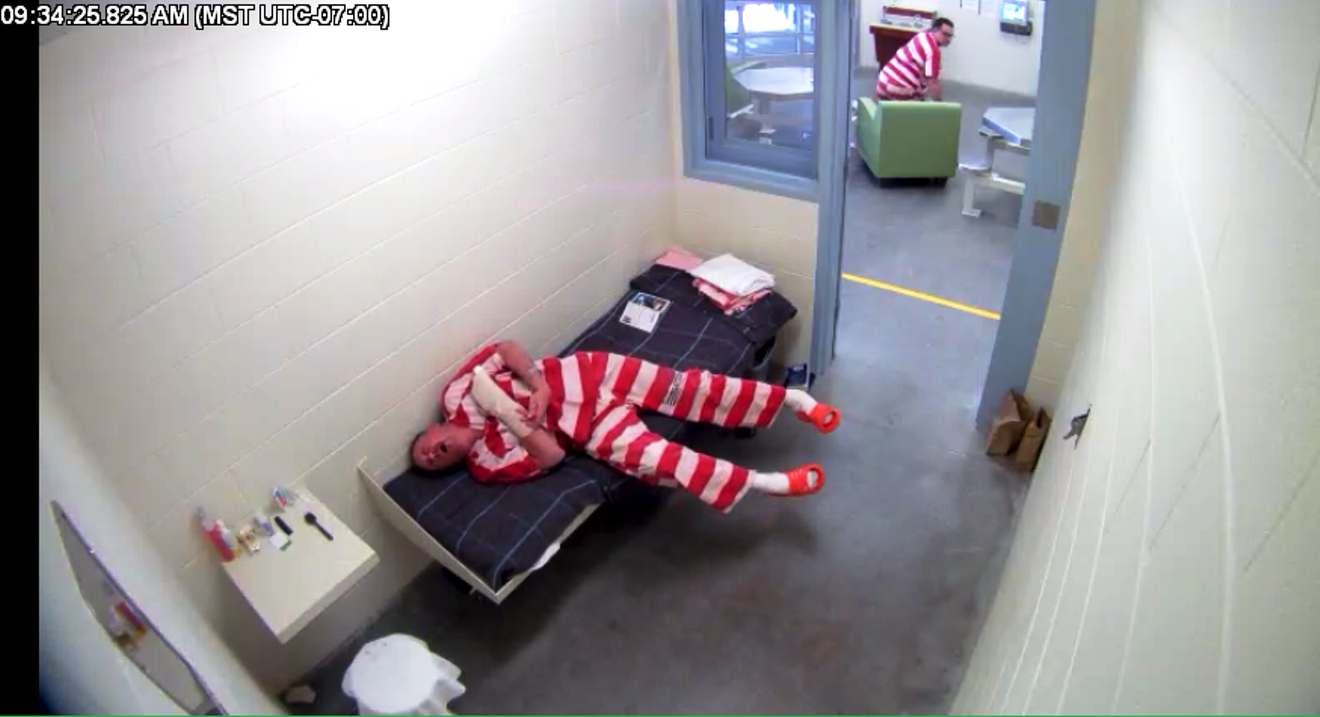Kevin Hartwell, 55, was arrested and taken to the Douglas County jail on November 10, 2016, to await trial on a misdemeanor domestic-violence charge of obstructing use of a telephone. When he left in the wee hours of November 30, it was in an ambulance bound for the emergency room at Castle Rock Adventist Hospital, after being in an almost constant state of seizure for the previous eight hours — more than 200 seizures captured on a surveillance camera during that period, according to the complaint.
Hartwell had a broken hand when he arrived at the jail. Staff were also informed that he had diabetes, high blood pressure, and a seizure disorder that he'd been successfully controlling with medications taken three or four times a day. Over the next few days, Hartwell's blood sugar and blood pressure levels fluctuated between dangerous extremes. The lawsuit claims that a doctor who consulted by telephone and other members of the jail's medical staff, all employees of Southwest Correctional Medical Group, were slow to correct dosages and inadequately monitored his condition; Hartwell was also denied access to his seizure medication.
"Not taking the meds in here that I was taking at home," he complained after six days of "wild swings" in his condition. "I'm begging you to help me some more." After a few more days, he complained of dizziness and shortness of breath and said he feared that he was dying.

Responding to the seizure depicted above, Douglas County deputies check Hartwell's vital signs. Records indicate anti-seizure medication was ordered but not administered.
Douglas County Sheriff's Office
The situation worsened considerably on the evening of November 29, when Hartwell underwent status epilepticus — a state of continuous seizure. A nurse's response was to have him transferred to a mat on the floor of his cell to reduce his risk of injuring himself, but he soon twisted off the mat.

A deputy attempts to keep Hartwell on his side as the seizures continue after he was moved to a mat from his bed.
Douglas County Sheriff's Office
After two weeks, Hartwell was transferred to a rehabilitation facility. He pleaded guilty to a misdemeanor last spring and was sentenced to three years on probation. The sentence from his jail ordeal is harsher, though; the lawsuit states that he is now "constantly fatigued," cognitively impaired and unable to control his seizures, which require frequent hospitalization. His attorney, Galen Trine-McMahan, suspects the seizures began early in his jail stay. But he's been unable to confirm that from surveillance footage because jail officials maintain that much of that footage was destroyed as part of its records-disposal routine, despite letters from Trine-McMahan demanding that it be preserved.

Hartwell was removed from his cell and taken to a Castle Rock hospital in the early hours of November 30, 2016, after more than seven hours of constant seizures.
Douglas County Sheriff's Office
"They were telling me, 'We're working on getting you these things,'" Trine-McMahan says. "Then we found out they claim to have a ninety-day rolling deletion policy. They knew they were obligated to preserve it."
A spokeswoman for the Douglas County Sheriff's Office declined to comment on the lawsuit. Southwest Correctional's contract with the county specifies that the company must pay for off-site care, which Trine-McMahan describes as an incentive to deny medical treatment that requires a trip to the ER. The company's California counterpart was the subject of a recent grand jury investigation over a similar contractual arrangement.
"I think it's a culture at Southwest Correctional," Trine-McMahan says. "'Let's cut costs. Let's not have doctors actually see patients. Let's put nurses in there and make them fear for their jobs if they make too many ER transfers.' You can sort of see that culture in the written policies."












